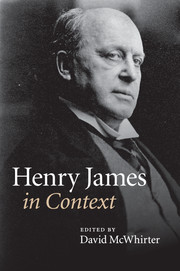Book contents
- Frontmatter
- Contents
- List of Illustrations
- Notes on Contributors
- Preface
- Abbreviations
- Chronology
- Part One Life and career, times and places
- Part Two Historical and cultural contexts
- Chapter 9 Aestheticism and Decadence
- Chapter 10 Authorship
- Chapter 11 Children
- Chapter 12 Consumer culture
- Chapter 13 Cosmopolitanism
- Chapter 14 Courtship, marriage, family
- Chapter 15 Ethics
- Chapter 16 Language
- Chapter 17 Law
- Chapter 18 Manners
- Chapter 19 Media and communication technologies
- Chapter 20 Modernism
- Chapter 21 Money and class
- Chapter 22 Museums and exhibitions
- Chapter 23 Nationalism and imperialism
- Chapter 24 Print culture
- Chapter 25 Psychology
- Chapter 26 Race
- Chapter 27 Realism and naturalism
- Chapter 28 Sexualities and sexology
- Chapter 29 Social sciences and the disciplines
- Chapter 30 Things
- Chapter 31 Time
- Chapter 32 Travel and tourism
- Chapter 33 Urbanity
- Chapter 34 Visual culture
- Chapter 35 Women and men
- Chapter 36 Work
- Part Three Reception
- Further reading
- Index
- References
Chapter 30 - Things
Published online by Cambridge University Press: 05 August 2014
- Frontmatter
- Contents
- List of Illustrations
- Notes on Contributors
- Preface
- Abbreviations
- Chronology
- Part One Life and career, times and places
- Part Two Historical and cultural contexts
- Chapter 9 Aestheticism and Decadence
- Chapter 10 Authorship
- Chapter 11 Children
- Chapter 12 Consumer culture
- Chapter 13 Cosmopolitanism
- Chapter 14 Courtship, marriage, family
- Chapter 15 Ethics
- Chapter 16 Language
- Chapter 17 Law
- Chapter 18 Manners
- Chapter 19 Media and communication technologies
- Chapter 20 Modernism
- Chapter 21 Money and class
- Chapter 22 Museums and exhibitions
- Chapter 23 Nationalism and imperialism
- Chapter 24 Print culture
- Chapter 25 Psychology
- Chapter 26 Race
- Chapter 27 Realism and naturalism
- Chapter 28 Sexualities and sexology
- Chapter 29 Social sciences and the disciplines
- Chapter 30 Things
- Chapter 31 Time
- Chapter 32 Travel and tourism
- Chapter 33 Urbanity
- Chapter 34 Visual culture
- Chapter 35 Women and men
- Chapter 36 Work
- Part Three Reception
- Further reading
- Index
- References
Summary
I do not want to move beyond a thing, as I am always still approaching it from within a scene of contact.
Lauren BerlantIs James’s writing a good place to look for things? In an influential essay of 1983, Jean-Christophe Agnew argued that James’s texts reproduce the representational logic of modern commodity culture: they manifest a perspective ‘of “acquisitive cognition,” that is, an appropriative view of social meanings as fungible “things”’. James’s art demonstrates a ‘relentless commitment to acquisition’ allied with a ‘merciless power to detach . . . its objects . . . from their conventional associations and context and accumulat[e] them as resources, as capital’ (Agnew, 82, 97). The things pursued, detached, displayed and circulated by James’s ‘consuming vision’ can thus be understood in terms of Marx’s commodity fetish: they are cognitive and physical products alienated from their economic origins. The more of these reifications a novel acquires, the less it may engage with that material reality from which it has detached its symbolic objects, so that ‘[t]he thickness of Jamesian description grows over the sequence of his novels at the same time as the proportion of direct reference to material life declines’ (Agnew, 84). For Agnew, James’s texts appear to be shamelessly stuffed with things, but these things are merely ‘a consumer culture’s symbolic representations “disengaged, disembroiled, disencumbered” – to use Henry James’s words – from the specific and immediate needs of material life’ (Agnew, 82). In this view, a spectacular proliferation of things within James’s texts symptomizes a commodity culture’s alienation from material reality.
Information
- Type
- Chapter
- Information
- Henry James in Context , pp. 321 - 331Publisher: Cambridge University PressPrint publication year: 2010
References
Accessibility standard: Unknown
Why this information is here
This section outlines the accessibility features of this content - including support for screen readers, full keyboard navigation and high-contrast display options. This may not be relevant for you.Accessibility Information
- 3
- Cited by
